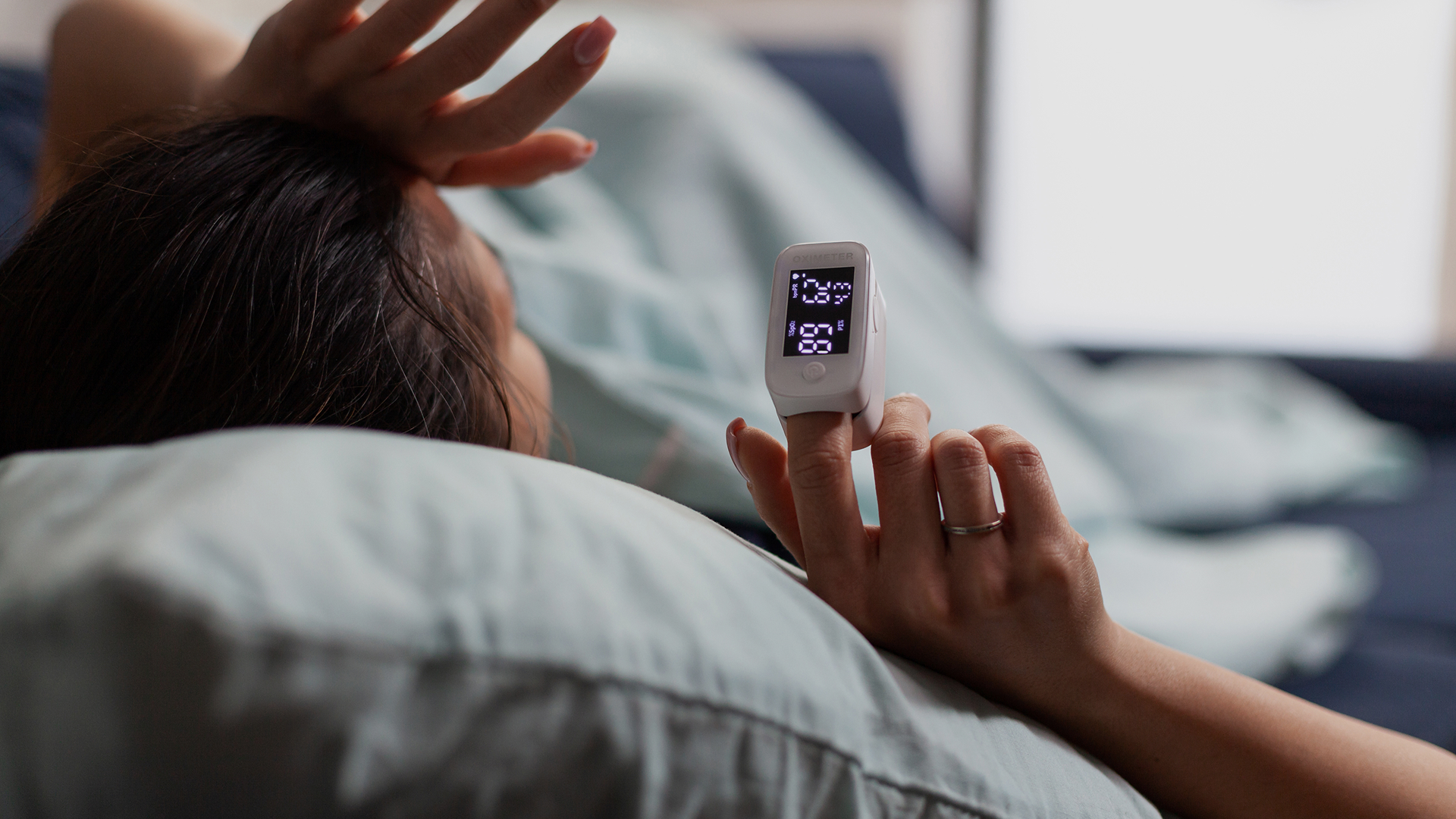Sleep apnea is a serious sleep disorder that affects breathing during rest, which often leads to fatigue, health complications, and poor quality of life. Among its most common forms is obstructive sleep apnea, where the airway becomes blocked repeatedly during sleep. With cases steadily rising worldwide, many people are beginning to ask not just about the meaning of sleep apnea but also the symptoms of sleep apnea and treatment of sleep apnea, and whether the condition can be passed down genetically, if your parent or siblings have been diagnosed with sleep apnea, you may be wondering if you could inherit sleep apnea too.
Let’s understand what sleep apnea does to your body and how it affects your hereditary issues:
What is sleep apnea?
Sleep apnea is one of the many forms of sleep disorders referred to as sleep disordered breathing (SDB), a spectrum that ranges from plain and simple snoring to severe apnea and obesity hypoventilation syndrome. The word “apnea” simply means a slowed or stopped breathing rate, in this case, while asleep.
There are two main types-
- obstructive sleep apnea (airway blockage)
- central sleep apnea (brain signal disruption).
Some patients experience a mix of both, known as complex sleep apnea.
Obstructive sleep apnea (OSA) happens when the airway is blocked during sleep, often due to relaxed throat muscles, the tongue or tonsils falling back, or excess neck fat putting pressure on the airway.
Central sleep apnea (CSA) is different as it occurs when the brain fails to send proper signals to the lungs to breathe, making it a neurological issue rather than a mechanical one.
You can read also to know more about How Sleep Apnea Increases the Risk of Heart Disease.
What are the symptoms of sleep apnea?
The symptoms of sleep apnea, whether obstructive sleep apnea (OSA) or central sleep apnea (CSA), often overlap, making diagnosis tricky. Common sleep apnea symptoms include:
- Loud, chronic snoring
- Breathing pauses or episodes of stopped breathing during sleep (often noticed by a partner)
- Gasping or choking for air while sleeping
- Waking up with a dry mouth or sore throat
- Frequent morning headaches
- Trouble staying asleep (insomnia)
- Excessive daytime fatigue or hypersomnia
- Poor focus and difficulty concentrating
- Mood changes and irritability
If you notice these warning signs, it’s important to seek proper evaluation and consider sleep apnea treatment to prevent long-term complications.
Is sleep apnea hereditary?
When it comes to sleep apnea, the answer isn’t as simple as yes or no. Research suggests that certain genetic factors may increase your likelihood of developing hereditary sleep apnea. While studies are ongoing, it’s clear that some risk factors can indeed be inherited.
If a parent or sibling has sleep apnea symptoms, it’s important to know which type they suffer from: obstructive sleep apnea (OSA) or central sleep apnea (CSA). This helps you understand your own potential risk.
There’s a difference between the two identified causes of sleep apnea: obstructive sleep apnea (OSA) is mostly attributable to anatomical and/or lifestyle triggers (e.g., excess neck fat), as well as central sleep apnea (CSA), which relates to the brain not sending proper breathing signals. If you have a family history, you should watch for early signs of sleep apnea: loud snoring, fatigue during the day, waking up gasping, etc. The best course of action is to seek timely sleep apnea treatment to account for the risks.
Which Risk Factors of Obstructive Sleep Apnea Are Hereditary?
Obstructive sleep apnea (OSA) is most commonly associated with having excess weight. Extraneous fatty tissue around the neck-region can apply pressure to and on the throat when a person is asleep which can lead to a partial or complete obstruction of breathing.
Since genetics influence body type and weight distribution, some people may be more prone to developing hereditary sleep apnea. For instance, if you inherited a larger body frame or tendency to gain weight around the neck, your chances of experiencing obstructive sleep apnea symptoms like snoring or interrupted breathing are higher.
Sustaining appropriate body weight through a nutritious diet and exercise is one of the most effective methods of reducing weight related sleep apnea risk factors.
Other possible hereditary factors contributing to obstructive sleep apnea may consist of:
- Large tongue relative to mouth size
- Narrow airway
- Small lower jaw
- Short cheekbones
- Throat structure that reduces airflow
- Short, thick neck
- Hypertension (high blood pressure)
Recognizing these risks early can help you seek timely sleep apnea treatment and improve long-term sleep and overall health.
Which Risk Factors of Central Sleep Apnea Are Hereditary?
The exact cause of central sleep apnea (CSA) remains unclear, as it’s often idiopathic. However, several sleep apnea risk factors increase the chances, including:
- Use of narcotic pain relievers (opioids)
- Living at high altitude
- End-stage kidney disease
- Stroke
- Congestive heart failure
Some of these factors may be hereditary risks for sleep apnea, meaning family history could affect your own risk. If you’re seeing sleep apnea symptoms and have these risk factors, discuss them with a health care provider so that you can get the sleep apnea diagnosis and treatment you need.
| Obstructive Sleep Apnea (OSA) | Central Sleep Apnea (CSA) |
| Larger body size/obesity tendency (inherited fat distribution around the neck) | Neurological predisposition affecting the brain’s breathing control |
| Shorter, thicker neck (genetic neck shape) | Family history of heart conditions (e.g., cardiomyopathy, CHF) |
| Narrow airway or throat structure (smaller diameter) | Genetic kidney disease leading to fluid imbalance |
| Small lower jaw (micrognathia) | Hereditary risk of weak respiratory drive |
| Large tongue (macroglossia) | Stroke risk in families (can disrupt breathing signals) |
- OSA = structural/anatomical hereditary traits.
- CSA = neurological/organ-related hereditary risks.
If your child has sleep apnea in children, it’s important to take steps to reduce risk factors. Keep them away from secondhand smoke, which can worsen obstructive sleep apnea symptoms. If your child is overweight, encourage healthy habits through a balanced diet and regular exercise to help them achieve a healthy weight. Always consult your child’s healthcare provider to create a safe, personalized pediatric sleep apnea treatment plan.
Treatment
Depending on the cause and severity, treatment for pediatric obstructive sleep apnea may include:
- Weight loss interventions such as diet, exercise, and behavioral therapy.
- Tonsil and adenoid removal surgery (T&A), often the first-line treatment for children.
- PAP therapy (e.g., CPAP machines), though long-term use may affect facial growth.
- Nasal spray steroids (like budesonide) to reduce airway inflammation.
- Other airway surgeries to remove excess tissue when needed.
- Oral appliances or orthodontic treatments to improve airflow.
- Orofacial therapy (mouth and facial muscle exercises) to strengthen the airway.
- Support from a pediatric weight loss specialist for lifestyle and medical guidance.
With the right care, childhood sleep apnea can be managed effectively, improving your child’s sleep, growth, and overall health.






